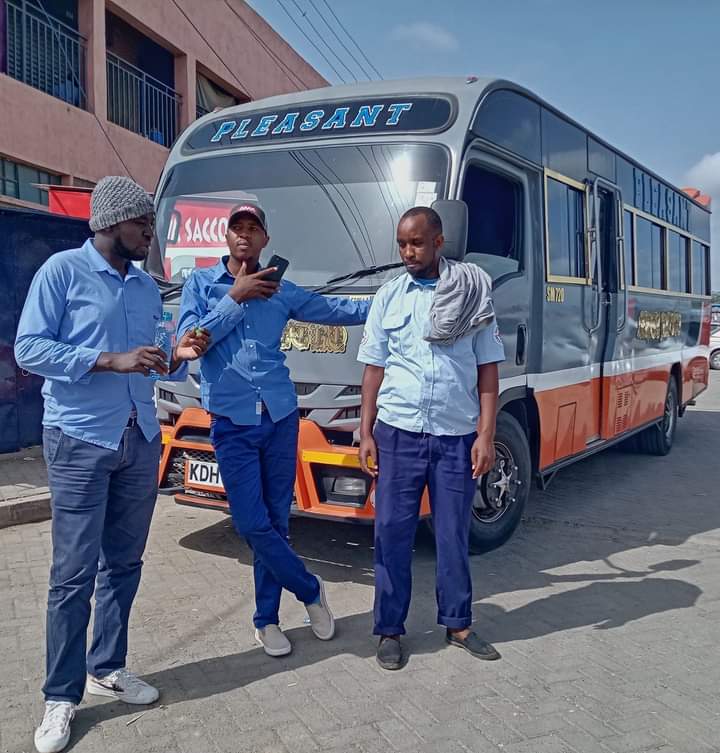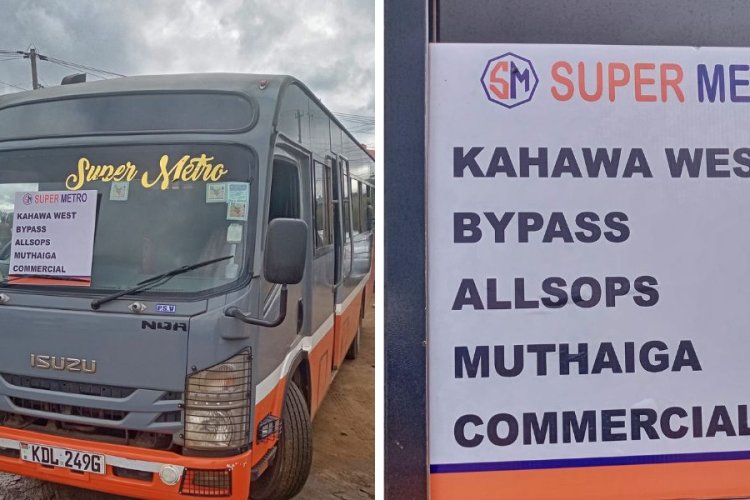The Public Service Vehicles (PSVs) slowed operations along the Roysambu road and at the Kahawa West roundabout, with no passengers being picked up or dropped off at the prescribed time.
The standoff caused a traffic jam during rush hour as travellers sought alternate routes to their offices.

According to a Super Metro firm official, other matatu Saccos existing at the time fought their expansion plan out of fear of competition.
He claimed that the other matatus feared competition and blocked the stage. They shut down the Roysambu to Kahawa West and the roundabout stage.
Did you read this?
According to the official, a meeting between the Saccos took place on Monday, April 17, to analyze Super Metro's debut and how it would hamper operations on the new route.
He remarked that the crisis was managed by traffic officers who hurried to the area, allowing the traffic to flow normally
he pointed out that The police affirmed that they were licensed and had the requisite documents to operate

This protest comes after the super metro announced that it was expanding its routes to include kahawa west and its environs. Part of their official statement says that today they officially commenced their services in Kahawa West, and their main aim is to serve their esteemed clients better.
Due to its strict respect for traffic laws and regulations in a sector where disorder prevails, Super Metro has become a popular Passenger vehicle for Nairobi travellers.
Only in February did the transportation firm move to environmentally friendly vehicles, presenting its first electric bus fleet.
Sacco's electric cars service the Central Business District (CBD)-Kitengela, CBD-Kikuyu, and CBD-Ngong routes.
Sacco purchased electric buses in partnership with BasiGo, an electronic bus startup aiming to provide environmentally friendly transportation solutions on the African continent.
Super Metro purchased a K6, a 25-seat electric bus with a 250-kilometre range and a charging time of fewer than four hours.









